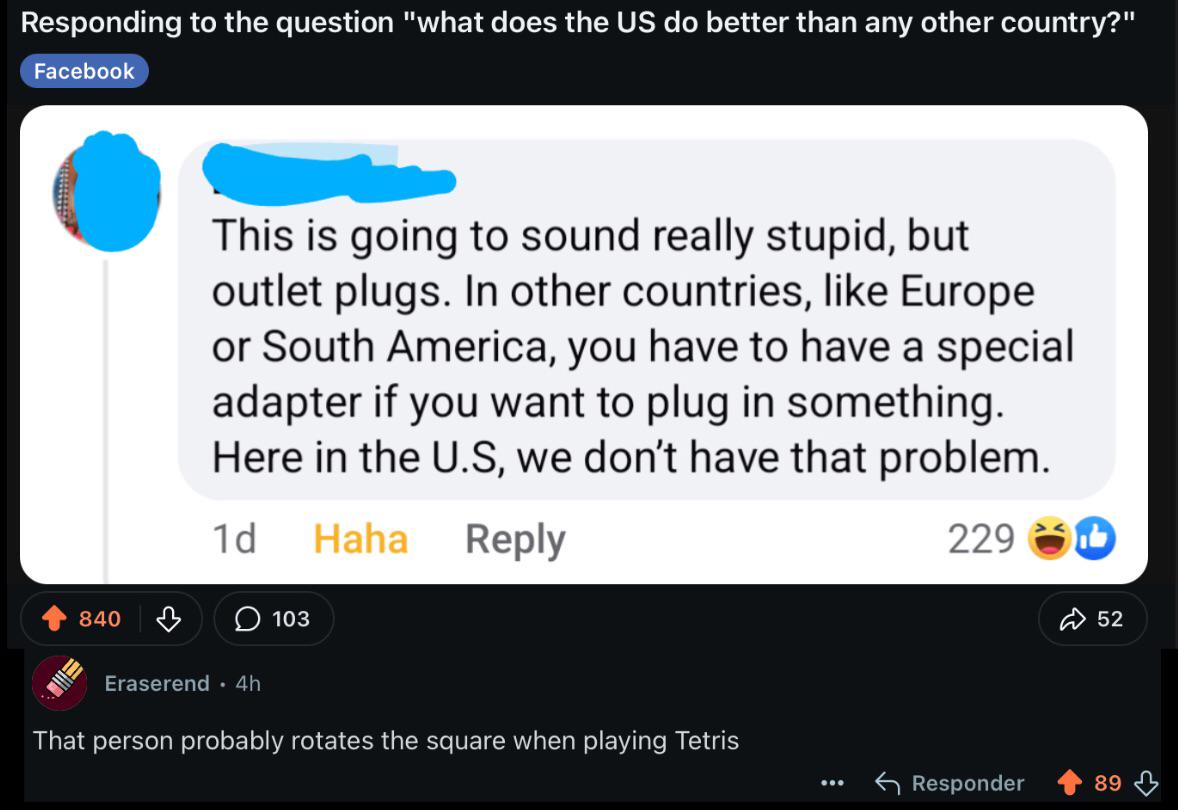this post was submitted on 27 Jun 2025
629 points (98.0% liked)
Rare insults
1557 readers
76 users here now
Post any unique insults you find!
Rules:
- No hateful Insults
- No personal information
- No politics
founded 2 years ago
MODERATORS
you are viewing a single comment's thread
view the rest of the comments
view the rest of the comments

I like accents. There’s a nugget of truth to that though. Accent variation in the UK is greater than across the whole of the US. You can drive the length of Britain in America and still hear less variation than you’d get in just 15 miles across parts of the UK, thanks to its highly localized linguistic evolution over centuries. Interestingly, some American accents are actually closer to 17th century English than many found in the UK today, and (comparatively) lack strong markers like rhotic dropping, vowel shifts, or intonation patterns that give it a ‘vanilla’ vibe.
I would imagine that this has similar root causes like Italian in South Tyrol. About 100 years ago in an attempt to forcefully italianize the german-speaking Tyroleans the fascists moved a lot of italians from all over Italy into South Tyrol, resulting in a very clean italian (somewhat "high-italian") being spoken there, opposed to the various regional dialects all over Italy. The clean language is a more common ground between everyone, so it makes sense to default to that (and is a lot closer to the language foreigners learn)
I have a buddy in London who swears he can almost tell what neighborhood someone grew up in based solely on their accent. I don't think it's quite that bad but last time I was there he did point out several that were solely in London.
Yep I can tell apart different accents from around Glasgow. Most cities will look like this so easier than it sounds.
That map is Manchester. The clue is "scally" in the west and posh as you get towards Cheshire.
Yes I know it was an example hence ‘most’
Same for me, grew up in the countryside, there were at least 3-4 villages that had a distinctive enough accent that I could pick up on it.
That is because the size of an area has less importance to the development of dialects than time. Dialects developed in pre-industrial times in fairly small localised areas, when contact with other areas was sparse. European countries much smaller than the UK still have more dialects than the US because of this.